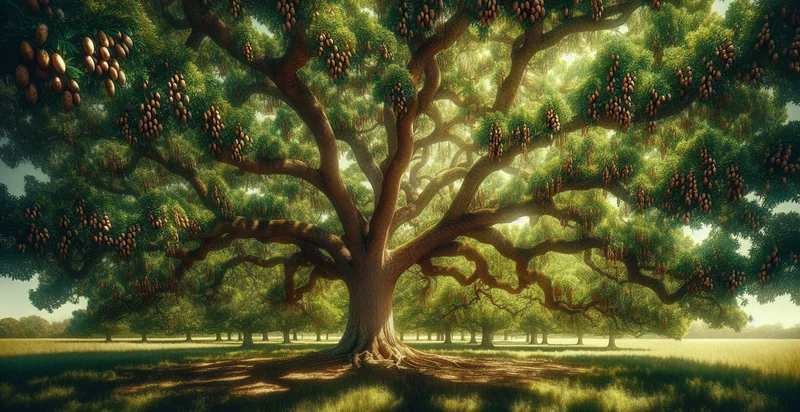Identify if tree is a pecan
using AI
Below is a free classifier to identify if tree is a pecan. Just upload your image, and our AI will predict if the tree is a pecan - in just seconds.

Contact us for API access
Or, use Nyckel to build highly-accurate custom classifiers in just minutes. No PhD required.
Get started
import nyckel
credentials = nyckel.Credentials("YOUR_CLIENT_ID", "YOUR_CLIENT_SECRET")
nyckel.invoke("if-tree-is-a-pecan", "your_image_url", credentials)
fetch('https://www.nyckel.com/v1/functions/if-tree-is-a-pecan/invoke', {
method: 'POST',
headers: {
'Authorization': 'Bearer ' + 'YOUR_BEARER_TOKEN',
'Content-Type': 'application/json',
},
body: JSON.stringify(
{"data": "your_image_url"}
)
})
.then(response => response.json())
.then(data => console.log(data));
curl -X POST \
-H "Content-Type: application/json" \
-H "Authorization: Bearer YOUR_BEARER_TOKEN" \
-d '{"data": "your_image_url"}' \
https://www.nyckel.com/v1/functions/if-tree-is-a-pecan/invoke
How this classifier works
To start, upload your image. Our AI tool will then predict if the tree is a pecan.
This pretrained image model uses a Nyckel-created dataset and has 2 labels, including Is Not Pecan and Is Pecan.
We'll also show a confidence score (the higher the number, the more confident the AI model is around if the tree is a pecan).
Whether you're just curious or building if tree is a pecan detection into your application, we hope our classifier proves helpful.
Related Classifiers
Need to identify if tree is a pecan at scale?
Get API or Zapier access to this classifier for free. It's perfect for:
- Personalized Nutritional Recommendations: This function can be integrated into mobile applications to help users identify pecan trees and recommend recipes or nutritional tips based on pecan consumption. By leveraging tree identification, users can gain insights into their local food sources and make healthier dietary choices.
- Sustainable Forestry Management: Land management organizations can use the identifier to accurately classify pecan trees in their forests. This enables better planning for sustainable harvesting and conservation efforts, ensuring that pecan trees are effectively managed while maintaining ecological balance.
- Agricultural Monitoring Systems: Farmers can utilize this classification function in smart farming technologies to monitor pecan tree health and growth in orchards. Timely identification of pecan trees helps in applying targeted care and resources, ultimately enhancing yield and reducing waste.
- Ecological Research and Biodiversity Studies: Researchers can employ the tree identification function to study ecosystems where pecan trees thrive. This can aid in biodiversity assessments and conservation strategies by understanding the role of pecan trees within their habitats.
- Landscaping and Urban Planning: Landscape architects and urban planners can use the pecan tree identifier to select suitable planting locations in parks and urban spaces. This ensures the incorporation of native species, improving aesthetic value and promoting local wildlife habitats.
- Educational Programs and Workshops: Educational institutions can use the identifier in programs designed to teach students about local plant life and ecology. Providing hands-on experiences in identifying pecan trees fosters environmental awareness and encourages positive interactions with nature.
- Timber and Nut Industry Support: Businesses in the timber and nut industries can leverage the identification function to streamline operations related to pecan sourcing and processing. This technology aids in efficient inventory management and quality control, enhancing overall productivity and profitability.


